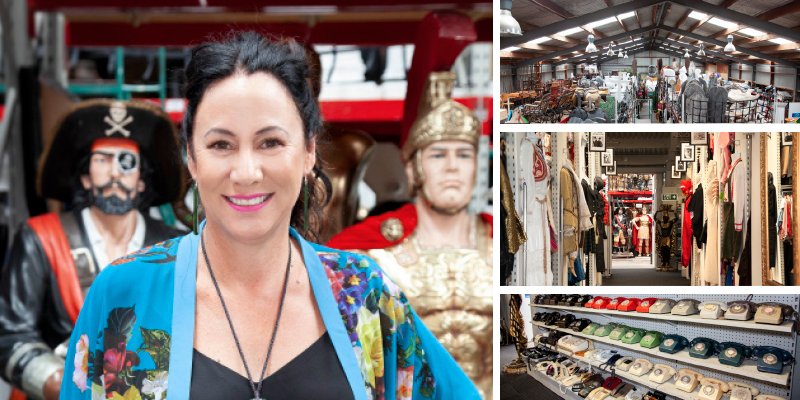For the good of the hood
Deep in the heart of Auckland, the suburb of Morningside has taken on a whole new identity thanks to the Crave Collective – a group of people intent on connecting neighbours and reducing social poverty. It is social enterprise in all its glory.
Deep in the heart of Auckland, the suburb of Morningside has taken on a whole new identity thanks to the Crave Collective – a group of people intent on connecting neighbours and reducing social poverty. It is social enterprise in all its glory.
Good coffee, good company, good outcomes – there’s a whole lot of good happening in the Auckland suburb of Morningside these days. It’s fair to say Morningside has discovered its ‘mojo’ – its altruistic roots – and it’s all thanks to a collective formed nine years ago through one small café called Crave in Morningside Drive.
NZBusiness caught up with Nigel Cottle, Crave’s general manager and ‘neighbourhood connector’, on a hot February afternoon to share the story behind the Collective, and the contribution it makes to the local community.
Nigel had a business degree and several youth-focused fundraisers under his belt by the time he and a few other recent arrivals to Morningside got together 11 years ago with the goal of making the suburb a better place to live and raise children.
They identified social poverty as one of the biggest issues facing, what was then, a largely transient neighbourhood; a somewhat haphazardly designed ‘urban jungle’.
It was a place of little social connection or belonging, Nigel recalls.
Crave café Version 1.0 opened in 2012, with just 20 seats – a space where neighbours could connect, get to know each other and foster a sense of belonging.
In terms of positioning, it was the worst possible location, Nigel says. Situated across the road from the spacious new Crave Version 3.0 (Version 2.0 involved punching through the wall of their original premises to include a lounge space, stage area and upstairs bar and meeting area) “there was no sun, no foot traffic, no parking and no profile!”
But despite all that, it was still a raving success.
All profits from the Crave venture went back to the community – and that’s still the case today in the latest incarnation of the café, housed in what was an old forklift tyre warehouse.
Today Crave is on the sunny side of the street and has 200 seats. It still employs locals and ploughs funding into the community supporting “anything that makes Morningside more liveable”.
“Crave has three major aims,” explains Nigel. “Connection – anything that brings neighbours together; pride – anything that makes people more proud to live here; and empowerment – through employment opportunities we help those who somehow don’t manage to self-determine.
“Perhaps they have a background of addiction, or are just out of prison, or maybe have a disability.
“As an example, we’re helping refugees set up a herbal market garden that teaches them how to grow commercial crops, such as high-value micro-herbs and edible flowers, to sell back to the likes of us.”
Another prime example of how the community works together was the owner of the current Crave building offering to cover the cost of the rather jaw-dropping fit-out.
Nigel remembers the move across the road and describes those first weeks, when staff numbers jumped from 24 to 55, as “chaotic”. They had not been prepared for the instant success of the café, and the move from counter service to table service. Poor systems and inefficient use of staff almost proved their downfall.
“The perception was that we were making heaps of money – but that was far from the truth,” he recalls.
Lessons applied
KIND café is the latest neighbourhood venture owned by the Collective. Managed by Nigel’s wife Cathie, and in the same precinct, it’s been operational since November and, like Crave, is staffed by locals. Nigel’s pleased to report that things ran more smoothly there from launch, driven largely by the lessons learnt with Crave.
KIND, with its abundance of greenery, colourful preserving jars, wooden furniture and ‘country kitchen’ vibe, has a different focus. It targets health-conscious women aged 20 to 50 and its specific mission is to improve the neighbourhood further by making it greener, healthier and more sustainable.
The food gently encourages plant-based food consumption – inspired by Michael Pollan’s guidelines of: “eat food, not too much, mostly plants”. It acknowledges the fact that the whole world, not just the local neighbourhood, needs to not eliminate meat consumption altogether, but simply reduce it.
As for the name – that was borrowed from PM Jacinda Ardern’s assertion that “you can be strong and you can be kind”. And again, the lion’s share of KIND’s profits go back into helping enrich Morningside.
“KIND is a social enterprise but different in that it does return some profits back to its investors, which includes Crave,” explains Nigel. There are less than 20 shareholders in the Collective, all in the local neighbourhood, but the idea is not to invest purely for financial return, he says, but for the social cause.
Whichever way you look at it, this social enterprise model is unique – the only model that compares is Christchurch’s Addington Coffee Co-op, which has been going longer and contributed some useful advice in the early days.
“Profit doesn’t drive us here, but it’s still important,” says Nigel. “If we do make a good profit, we get to do good things in the community with it. So profit’s a motivator, but not [the sole] driver.
“The whole reason for our existence is to make the neighbourhood better.”
Nigel says there have been many positives from the Collective experience and he’d like to see other similar social enterprises set up around the country.
He has learnt a great deal too – especially around scaling a business. Despite having a business degree he knew little about social enterprise before starting out with Crave. Now he’s an expert on the subject, and has plans to attend the Social Enterprise World Forum in Ethiopia later this year. “I found the one in Christchurch two years ago extremely helpful in setting up KIND.”
On the map
In 2019 Crave Collective is doing well. It has become a conduit for any new developments or businesses proposed for the neighbourhood. Why? Because they understand it so well.
Morningside has found its identity. It has become a popular weekend destination. Nigel says Crave café alone attracts around a thousand new customers each week, and many of them aren’t even aware of the cafe’s social purpose.
He’s adamant that the café experience must stand by itself. He’s also immensely proud of what they’ve achieved in the hood – and rightly so.



